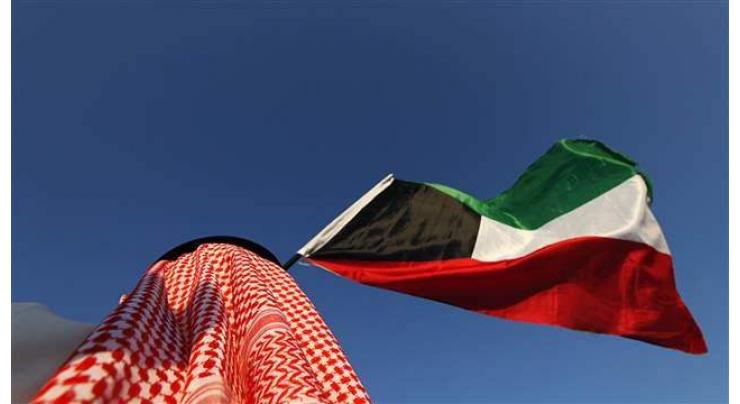
Kuwait Opposition 'needs Unity' After Poll Comeback
Umer Jamshaid Published December 01, 2016 | 05:20 PM

KUWAIT CITY, Dec 1, (APP - UrduPoint / Pakistan Point News - 01st Dec, 2016 ) - Kuwait's Islamist-dominated opposition made a strong showing in the Gulf state's parliamentary elections, but analysts say the loose coalition must forge strong unity to become an effective political force.
Saturday's polls were the first in nearly four years contested by the opposition, whose diverse components agree on some issues such as rejecting government austerity measures but are split on many others.
Political parties are banned in Kuwait, which has been ruled by the Al-Sabah family for two and a half centuries and was the first Gulf Arab state to adopt a parliamentary system in 1962. But many groups operate freely as de facto parties.
As a result, the opposition coalition is made up of individuals, rather than well-defined parties with a distinct ideology. The opposition groups boycotted two general elections in 2012 and 2013 in protest at a change in the voting system brought unilaterally by the government.
But they decided to contest the November 26 snap polls to stop what they called a "political deterioration" in the oil-rich emirate.
"The opposition is not a single entity. It is a coalition of groups and individuals not linked by a distinct ideology or even a programme," said political analyst Abdulwahed Khalfan.
"They differ in their directions and goals but they meet under a common umbrella of opposing the government," Khalfan told AFP. Islamists took nearly half of the 24 seats won by the opposition in the 50-member parliament.
The rest went to nationalists and liberals. The main Islamist group is the Muslim Brotherhood-linked Islamic Constitutional Movement (ICM) which won six seats along with its allies. The radical Salafists and their supporters won five seats.
"I think we will see more than one opposition bloc in parliament ... Not all opposition members can be classified under one category," political analyst Saleh al-Saeedi said. "They will agree on a number of priority issues ... On populist issues, their number will increase as other MPs will join," Saeedi told AFP.
Related Topics
Recent Stories

Cricket: England v West Indies 3rd Test scoreboard

Finance minister briefs Chinese officials on reform agenda, engagement with IMF

Finland says Russian vessel violated its territorial waters

Olympic opening ceremony under way on River Seine

West Indies' treble strike rocks England in third Test

Ukraine court orders detention of suspect in murder of nationalist ex-MP

Long queues, ticketing problems ahead of Paris opening ceremony

Rana Sanaullah Khan joins Paris 2024 Olympics inauguration reception

Glowing tributes mark 69th birthday of President Zardari at Governor's House

Players unaware of spying scandal as Canada Olympic coach sent home: official

Naqvi hails Pak women cricketers for going down fighting against SL

'Sabotage' on French rail network before Olympics: What we know
More Stories From World
-
Biden talks Gaza ceasefire efforts with king of Jordan
5 hours ago -
Sinaloa Cartel co-founder pleads not guilty after stunning US capture
5 hours ago -
Panama says Venezuela blocked ex-presidents going to observe polls
5 hours ago -
Ethiopia mourns victims of landslide tragedy
5 hours ago -
Khan Yunis fighting displaces 180,000 Gazans in four days: UN
5 hours ago -
Trump slams rivals as he meets Netanyahu in Florida
5 hours ago
-
Obama & his wife, Michelle, officially endorse US VP Kamala Harris for president
5 hours ago -
Rain, cooling slow huge blaze in Canada's Jasper park
5 hours ago -
Airbus and Boeing supremacy secure despite turbulence
5 hours ago -
S.African police detain 95 Libyans at suspected military camp
6 hours ago -
'Slapping therapist' guilty over UK diabetic woman's death
6 hours ago -
Panama says Venezuela blocked flight of ex-presidents going to observe polls
6 hours ago